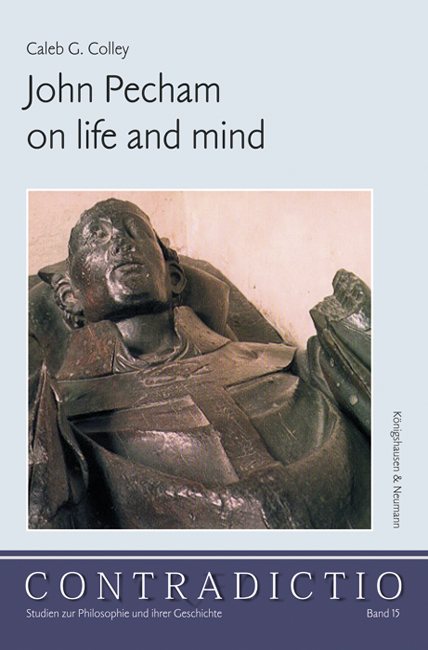Beschreibung
John Pecham (ca.1235-1292) was an influential Franciscan theologian who taught at Paris before serving as Archbishop of Canterbury from 1279 until his death. Pecham is regarded as a founder of “Neo-Augustinianism,” a movement concerned with preserving a blend of theological and philosophical positions united under the banner of Augustine but openly adapted from Aristotle, Avicenna, Avicebron, and others. From this broadly Neoplatonic perspective Pecham took part in late-13th-century debates in philosophical anthropology, opposing both radical Aristotelianism and Thomas Aquinas’ psychology while remaining committed to his own reading of Aristotle. He represented a viable theological and philosophical perspective in his day, and was involved in major debates with Aquinas and other masters at the university of Paris. It is remarkable that in all of philosophical literature in the Thomist tradition, the great opponent of Aquinas in philosophy and theology, John Pecham, is largely omitted. This book opens the question of Pecham’s signifi cance by providing an interpretation of central texts and showing that his philosophical anthropology is based on a distinctive, original synthesis of Neoplatonic metaphysics. This Pechamian anthropology is a signifi cant alternative to that of Aquinas. This book discusses a variety of Pecham texts, with detailed expositions of two: his Tractatus De Anima, and the fifth of his Quaestiones De Anima.
The author Caleb Glenn Colley was educated at Freed-Hardeman University (B.A., B.S.), Faulkner University (Master’s of Liberal Arts), and the University of South Carolina (Ph.D. in philosophy). He lives in Marietta, Georgia, where he is the pulpit minister for the Macland Road Church of Christ. He can be reached at calebcolley@gmail.com.

